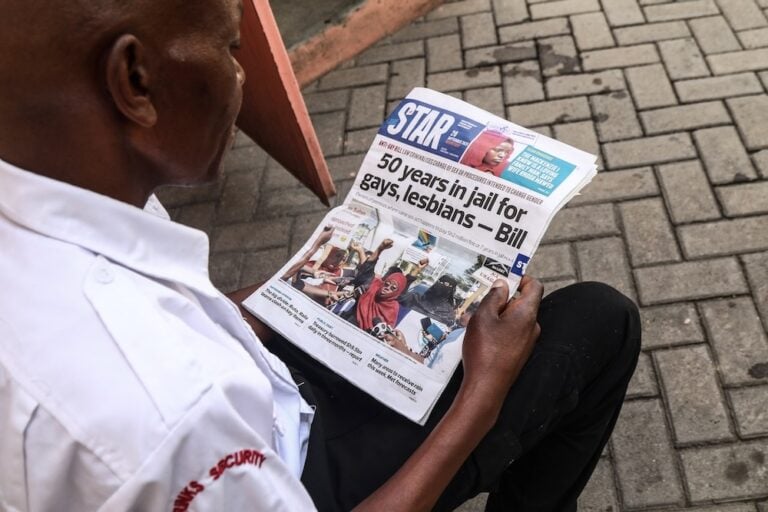(NDIMA/IFEX) – A fraudulent search warrant, purportedly issued by the chief magistrate, was used by police to raid the offices of Citizen Radio and Television and dismantle the station’s broadcasting equipment, lawyer Gibson Kamau Kuria, acting for the Royal Media, said in Nairobi on 14 June 2001. Kuria also told Civil Division Judge Alnarshir Visram […]
(NDIMA/IFEX) – A fraudulent search warrant, purportedly issued by the chief magistrate, was used by police to raid the offices of Citizen Radio and Television and dismantle the station’s broadcasting equipment, lawyer Gibson Kamau Kuria, acting for the Royal Media, said in Nairobi on 14 June 2001.
Kuria also told Civil Division Judge Alnarshir Visram of the High Court of Kenya that the alleged search warrant obtained by the Communications Commission of Kenya (CCK) was not valid when police were called in to enforce the illegal orders.
He said the CCK was in contempt of court, as it failed to disclose to the Chief Magistrate’s Court the existence of a High Court order blocking the commission and its agents from interfering with the smooth running and management of businessman S K Macharia’s Royal Media Services Limited.
The lawyer added that the constitutional powers of state to carry out searches on private property are limited and cannot be exercised arbitrarily without due regard to the provisions of the law.
Kuria was making his submissions during the hearing of an application lodged by Royal Media Services, Citizen Radio and Television’s holding company, challenging the dismantling of its radio and TV broadcasting equipment by the CCK and the police on 16 April.
Teaming up with lawyer Mwaniki Gachoka for Royal Media, Kuria declared that Macharia has invested more than Kes600 million (approx. US$7,636) into the private broadcasting business in Kenya, and that he employs over 100 Kenyans, whose jobs are now at stake following the dismantling of the station’s equipment.
The lawyer claimed that Citizen was the second largest radio and TV broadcasting station in the country after government-owned Kenya Broadcasting Corporation, adding that Citizen’s radio broadcasts were received in six provinces in Kenya, namely Eastern, North Eastern, Nairobi, Central, Rift Valley and Nyanza provinces.
The protection against arbitrary and irregular searches, as provided for under the Kenya Constitution prohibits police invasions on private property and curtailment of broadcasting freedom before observing the due process of law, he recalled.
Kuria said the policemen who raided the Royal Media office at Ambank House and Karen transmission station acted on orders from the CCK, in contravention of the constitution.
“There can be no legal justification in a democratic society to invade and dismantle private property such as radio and TV broadcasting equipment,” he argued.
Kuria said the court had jurisdiction to issue both prohibitive and mandatory injunctions against both the government officers and corporations in enforcement of human rights.


